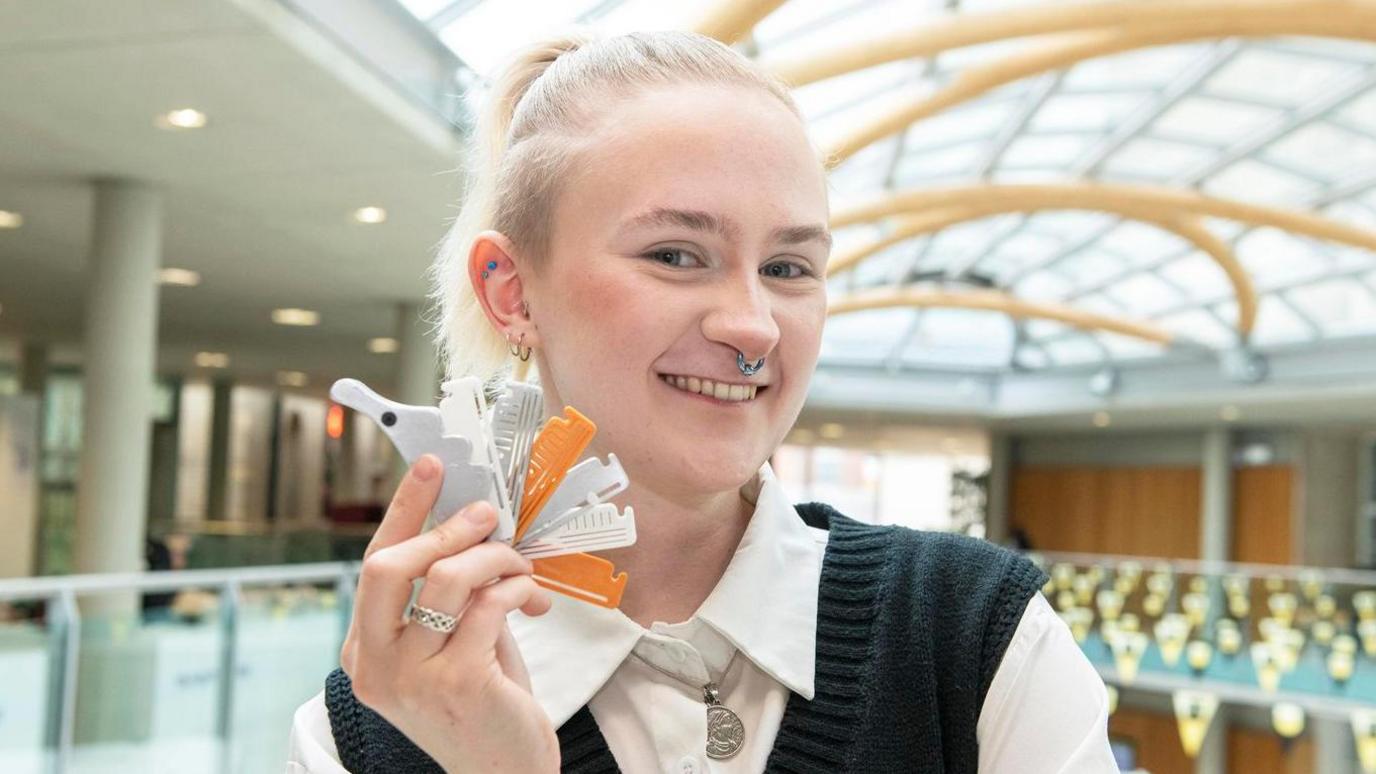Hair pulling made me ashamed, says Oxford professor
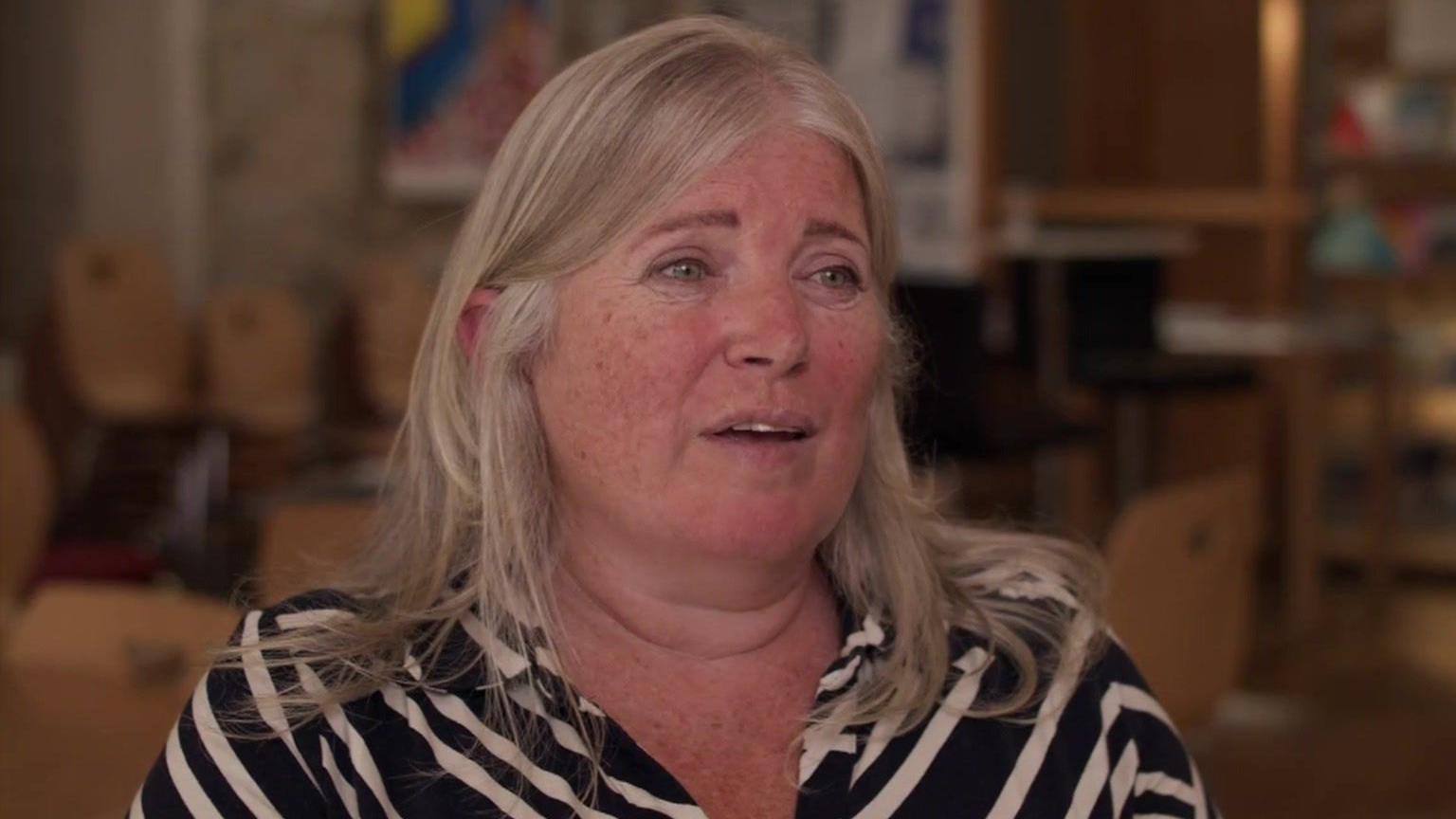
Prof Clare Mackay has lived with trichotillomania for 40 years
- Published
A University of Oxford professor has described living with an uncontrollable urge to pull out her hair.
Prof Clare Mackay has lived with trichotillomania for 40 years.
The 52-year-old said she had been too ashamed to speak about her experiences before but now wants to raise awareness and help others with the condition.
She has spoken out ahead of a conference on body focused repetitive behaviours (BFRB) being held in Oxford on 13 and 14 September.
"No matter how apparently successful I might be in life, and how many mountains - literal and metaphorical - I might have climbed, trichotillomania kept me feeling fundamentally weak, stupid and ashamed," she said.
The expert in imaging neuroscience at the university's department of psychiatry said she found it very hard to talk about when she was younger.
She said: "In the same way we all feel sadness but only some people have depression, we all worry but only some people experience clinical anxiety, we all experience urges to pick, pull and bite but for some of us that goes beyond the threshold and it becomes a disorder."
Prof Mackay said she realised she could use her 30 years of "studying the brain to try to lift the lid on this set of disorders that so little is known about".
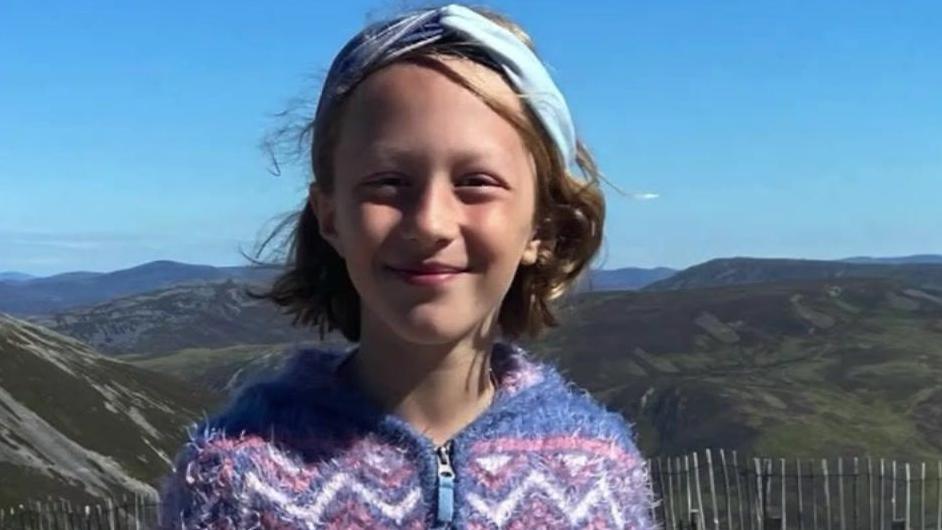
Bea,12, started pulling out her eyelashes when she was seven
There is no one solution for everyone but meeting people living with the condition is a major part of the new research programme.
Bea, 12, started pulling out her eyelashes when she was seven - and three years later, began pulling out her hair.
"I had no control over it, I wasn't sure what was happening," she told the BBC.
Her mother Josie said the situation had become "worrying" and as a parent "you want to make things better and I didn't know how to."
She said doctors had initially been dismissive until one "said the word trichotillomania for the first time".
"We had dark days," said Josie, adding that she searched the internet before coming across charity BFRB UK.
Through the charity, they found therapy for Bea, while Josie joined a parent support group.
Bea now has a full head of hair and is in a better place, her mum said.
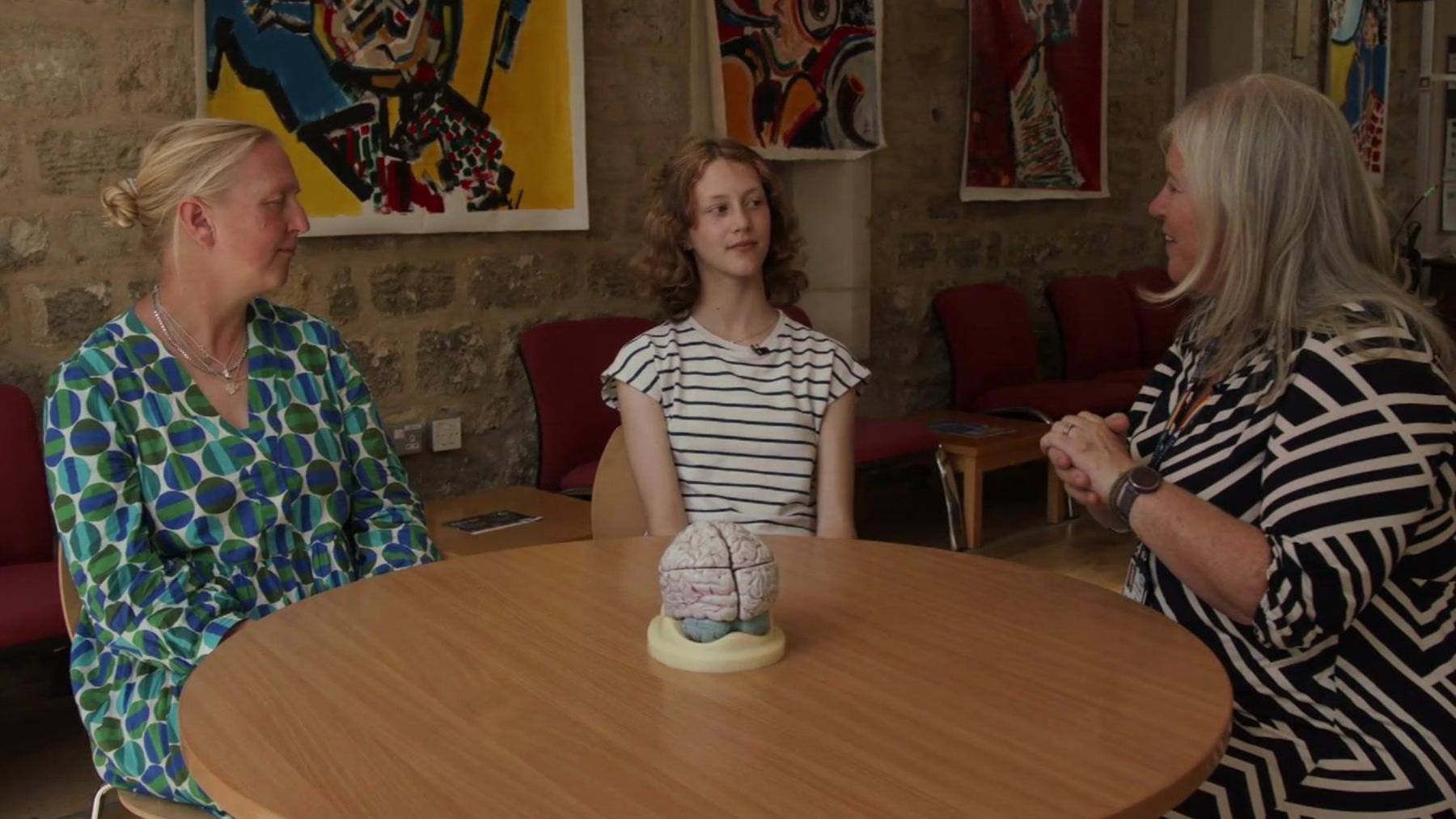
The conference will bring together experts, including Prof Mackay and sufferers like Bea, pictured here with mum Josie
BFRB UK said the repetitive behaviours affected about four million people in the UK and Ireland.
Experts from a range of scientific background and people living with BFRB will gather for the conference on the condition next month.
"We're trying to bring together a whole bunch of different lenses through which we can try to understand this behaviour," said Prof Mackay.
"Across them all, I hope we can start to have the conversations that mean we can find some answers."
Follow BBC South on Facebook, external, X (Twitter), external, or Instagram, external. Send your story ideas to south.newsonline@bbc.co.uk, external or via WhatsApp on 0808 100 2240, external.
Related topics
- Published28 August 2020

- Published18 October 2017
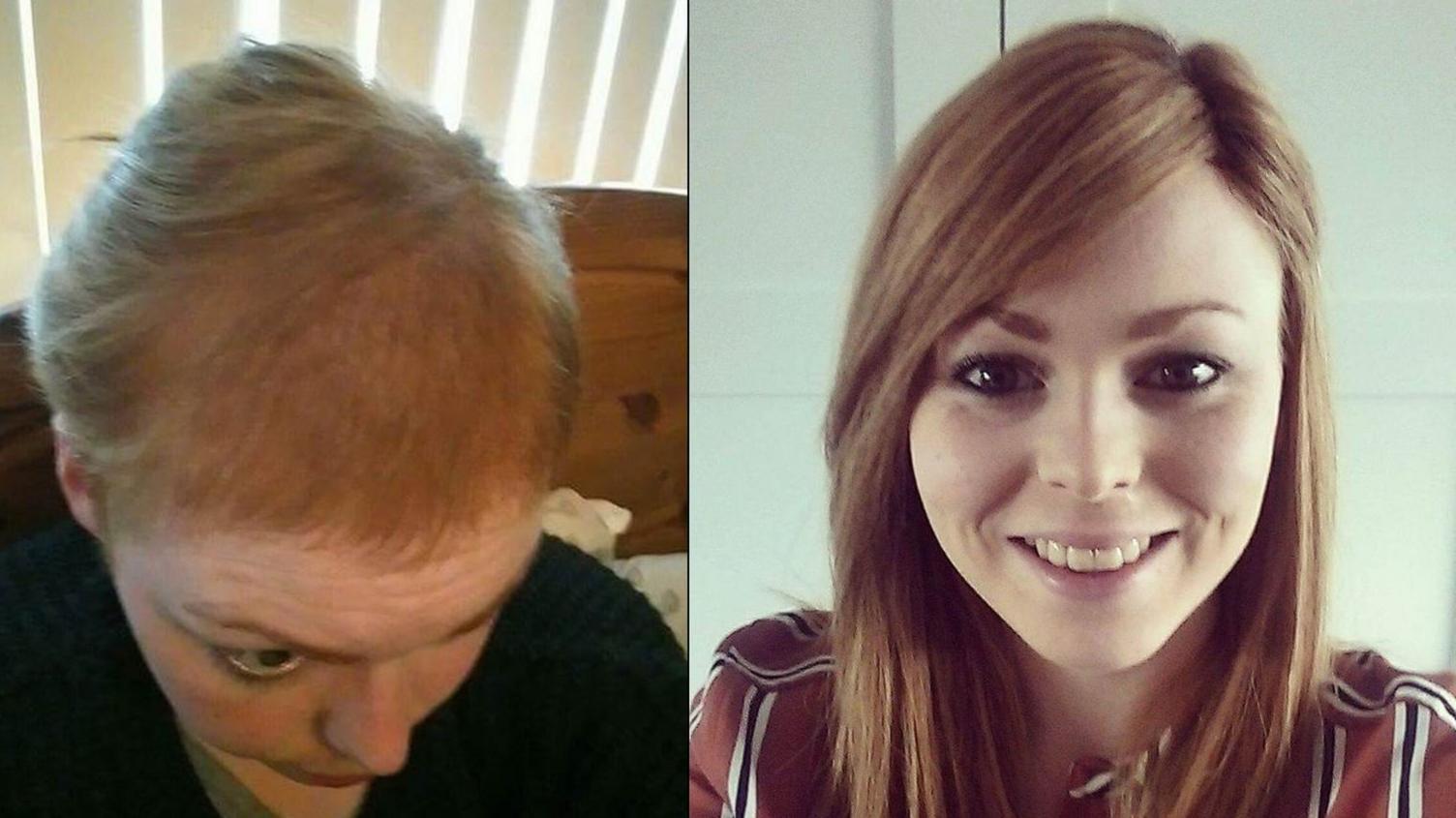
- Published18 June 2024
